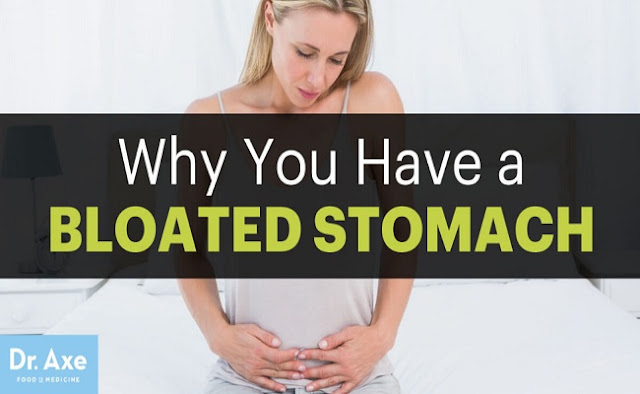What Truly Causes You To Bloat? Find Out Here!
You might be certain that you didn’t eat that much at dinner, but if your waistband suddenly seems tight, chances are that you’re experiencing bloating after eating. The effects of abdominal bloating vary from individual to individual; some people experience only a few inches of abdominal swelling while others can bloat up to almost double their original waist size.
Bloating after eating usually subsides overnight, but is triggered again the next day! Needless to say, abdominal bloating can be unsightly and uncomfortable. What causes abdominal bloating and how can you control the effects of bloating after eating?
Abdominal Bloating and Its Triggers
According to Jay W. Marks, MD, Associate Director of the Division of Gastroenterology at Cedars-Sinai Medical Center, abdominal bloating is the sensation of feeling like your stomach is larger than it normally is. Abdominal bloating is a symptom of an underlying health problem, not a condition it itself. He triggers for bloating after eating can include anything from a glass of water, chewing gum, micro-waved food, to fluctuating hormones. The main causes of bloating after eating are as follows:
Fluctuating Hormones
Hormonal fluctuations are a common cause for abdominal bloating in women. These fluctuations usually occur during a woman’s monthly cycle or during menopause. While most women attribute abdominal bloating during this time of the month to increased fluid retention by the body, the reason actually lies in relaxed muscles according to Leila Hanna, consultant gynecologist and obstetrician at BMI the Sloan Hospital, London.
The abdominal muscles become increasingly relaxed due to an increased production of progesterone by the ovaries during the period of ovulation, leading to the sensation of abdominal bloating. The bowel muscles also become increasingly relaxed, and become less efficient in transporting food particles along the digestive tract. This leads to constipation and the subsequent sensation of bloating after eating. To overcome abdominal bloating due to fluctuating hormones, Dr.Leila Hanna recommends eating fiber rich foods.
Re-Heating Food
According to Luci Daniels, dietician and former chair of the British Dietetic Association, most patients of abdominal bloating report that the sensation of bloating only strikes when they eat out. The most commonly identified food triggers include pasta, rice and potatoes.
According to Luci Daniels, the problem usually traces back to re-heated food. Re-heating food that is rich in starch leads to a molecular change which produces ‘resistant starch’. Resistant starch cannot be digested in the small intestine and it passes into the large intestine. The bacteria in the large intestine produce gas when it digests the resistant starch and this leads to bloating after eating.
To overcome abdominal bloating due to re-heated food, opt for freshly cooked foods. Also avoid processed foods such as read-made meals and part-baked breads.
Chewing Gum
Did you know that ingredients in chewing gum (especially the sugar free variety) can cause abdominal bloating when they are fermented by the bacteria in the gut? Moreover, Peter Whorwell, professor of medicine at Wythenshawe Hospital in Manchester, explains that the amount of air taken in while eating chewing gums can also cause abdominal bloating.
Source: Fitness Republic






